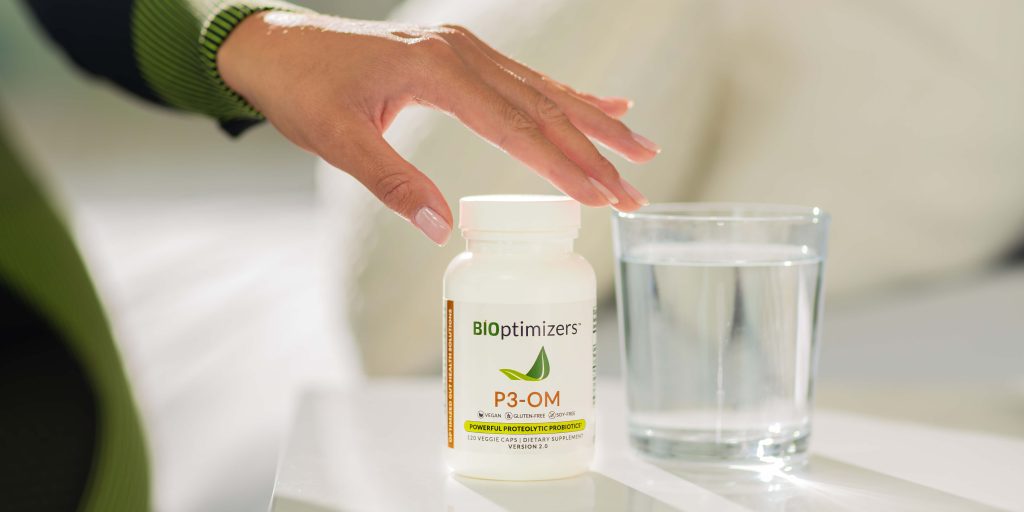What Causes Low Blood Sugar? Identifying the Culprits
Everyone experiences a drop in blood sugar levels (or hypoglycemia). It happens in healthy or non-diabetic people when blood sugar levels dip and you experience the resulting symptoms. This article covers the main causes behind low blood sugar levels and ways you can fix it.
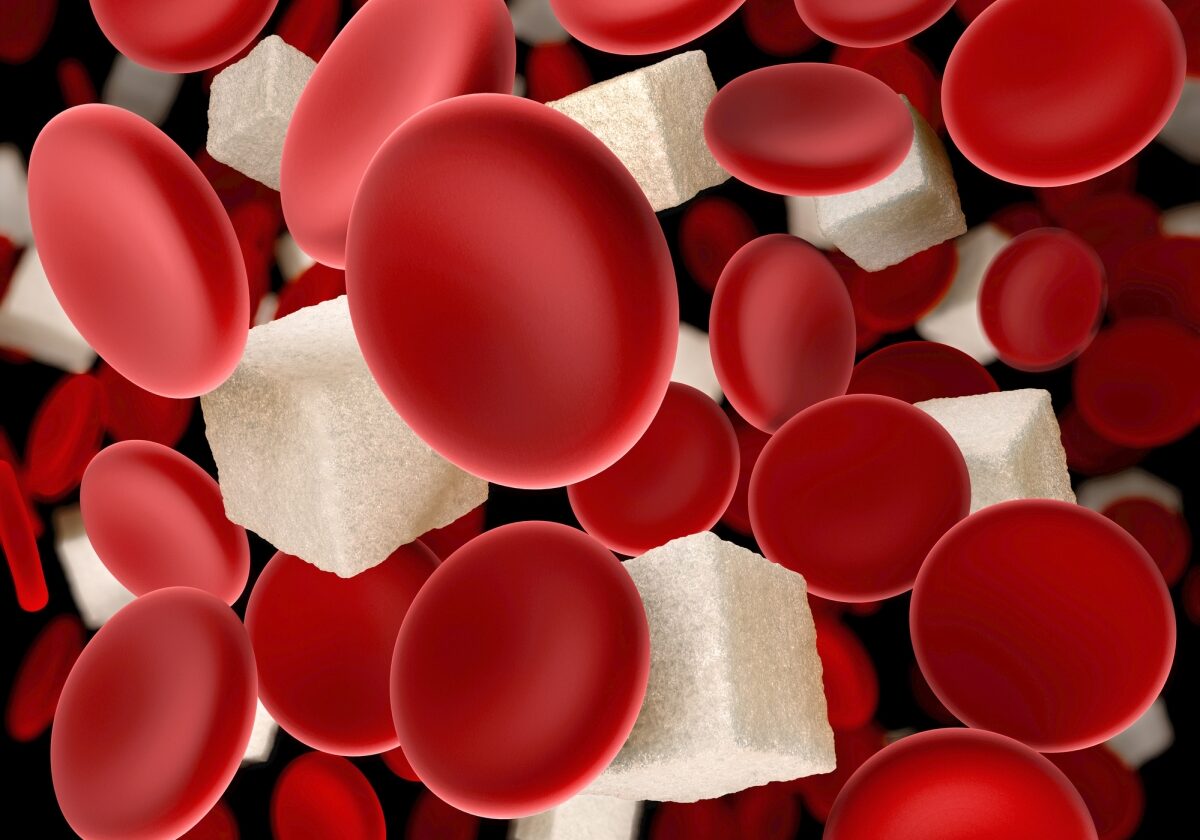
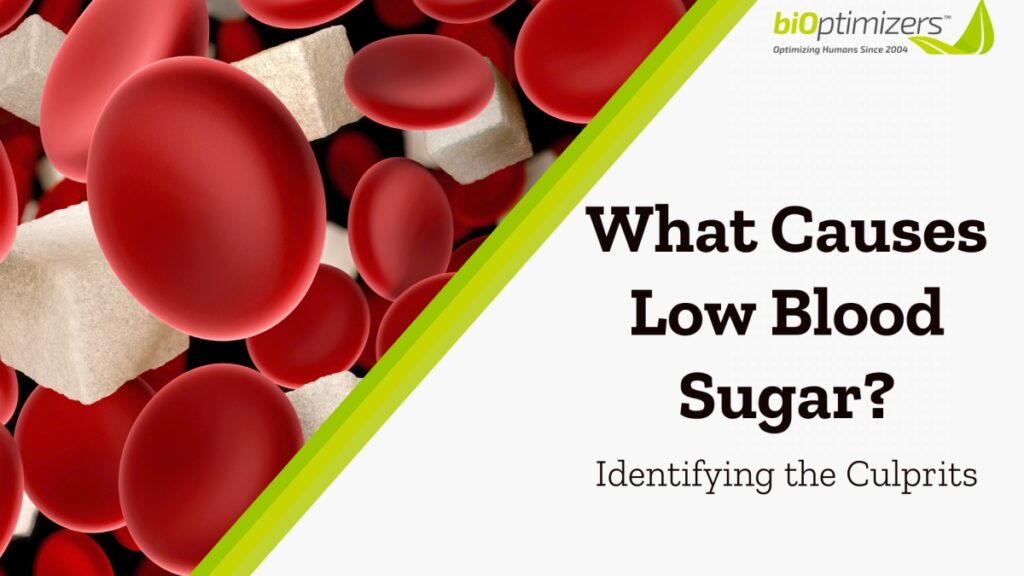
What Does It Mean To Have Low Blood Sugar Levels?
Low blood sugar levels, also known as hypoglycemia, occur when the amount of sugar/glucose in your blood drops. In this article, we are going to focus on hypoglycemia in healthy or non-diabetic people where the blood sugar is low enough to cause symptoms but not so low that it’s life-threatening.
There are two types of non-diabetic hypoglycemia: reactive and non-reactive. The latter can also occur during fasting.
Reactive hypoglycemia happens when too much insulin is in the blood at the wrong time. Typically, it happens in response to a meal. The blood sugar can dip shortly or up to a few hours after a meal, which triggers high insulin release. People with gastric bypass or abnormal transport of food to the intestine may also be at higher risk of having reactive hypoglycemia.
Factors that may cause non-reactive or fasting hypoglycemia include:
- Medicine (salicylates, sulfa drugs, pentamidine, quinine)
- Alcohol
- Illnesses affecting the liver, heart, or kidneys
- Low levels of hormones (cortisol, growth hormone, glucagon, epinephrine)
To learn about healthy blood sugar levels, check out the article “What Is A Healthy Blood Sugar Level?”
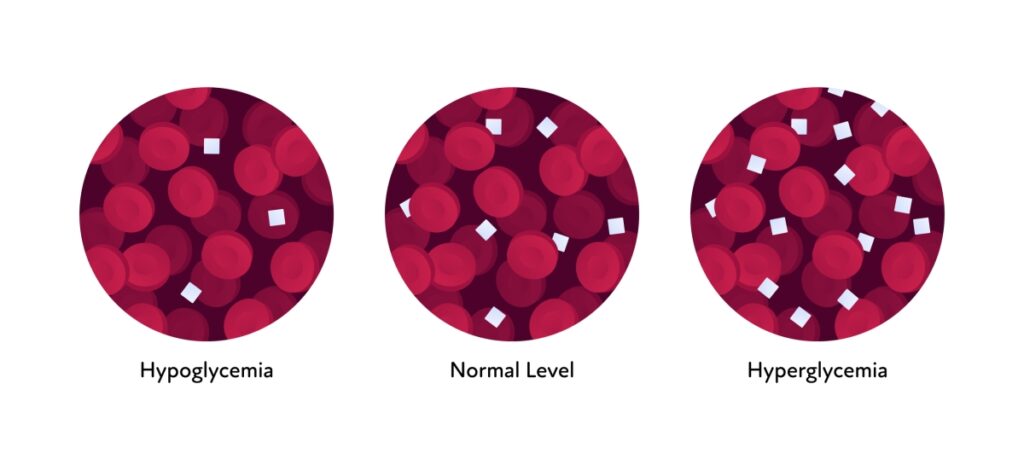
What Are The Causes Of Low Blood Sugar levels?
Insulin Resistance And Blood Sugar Fluctuations
When you consume a high-carb or sugary meal, the high blood sugar spike can cause your pancreas to secrete large amounts of insulin. The insulin causes glucose transporters to bring glucose into your fat and muscle cells, leading your blood sugar to drop rapidly.
This drop in blood sugar tends to cause sugar cravings, hunger, and irritability, leading you to reach out to more high-carb foods to bring your blood sugar back up.
Over time, these blood sugar roller coasters can reduce insulin receptors on the cell surface, ultimately causing cells to become insulin resistant or refuse to respond to insulin as healthy cells would.
To avoid these blood sugar level fluctuations and insulin resistance, blood sugar balance supplements come to the rescue.
Other factors that can cause insulin resistance include:
- Stress—Basically, stress-induced blood sugar spikes push the pancreas to produce insulin, therefore stress may create insulin resistance just as much as food does.
- Sleep—Getting adequate undisturbed sleep is crucial for glucose homeostasis, including glucose intolerance and insulin resistance.
- Weight—Obesity comes with an increased chance of developing insulin resistance. Fat tissues start releasing factors that lead to the development of insulin resistance.
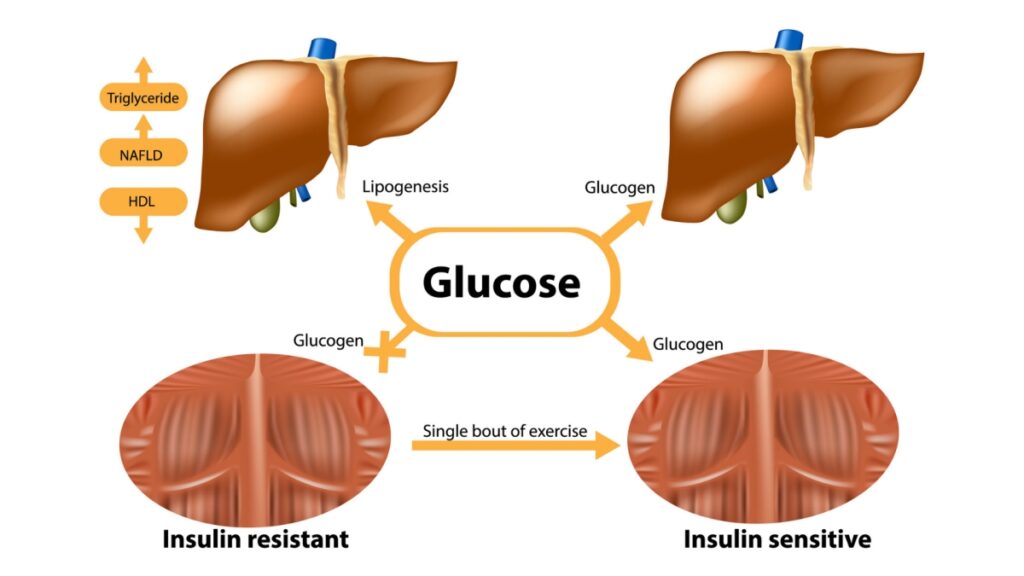
Having A High-Carb Or High-Sugar Meal
After eating a high glycemic impact (GI) meal, your blood sugar levels rise, causing an insulin spike. Insulin transports glucose into your fat and muscle cells, causing your blood sugar to dip rapidly.
The dip in blood sugar triggers stress hormones (adrenaline and cortisol) releases, which may cause anxiety. The blood sugar dip also causes you to experience intense hunger and desire for additional sugary meals in order to bring your blood sugar back up.
Carbohydrates that are harder to digest, such as vegetables, tend to have a lower glycemic index. By consuming low-GI foods, the rate of insulin secretion tends to be lower. In terms of insulin response, not all carbohydrates are equal. Generally, lower GI foods require less insulin, causing less blood sugar dip afterward.
Overdose Of Insulin Medications
Excess insulin in the blood causes your cells to absorb an abnormally large amount of glucose from the blood. It also reduces the amount of glucose released by the liver. Combined, these two consequences result in dangerously low blood sugar levels.
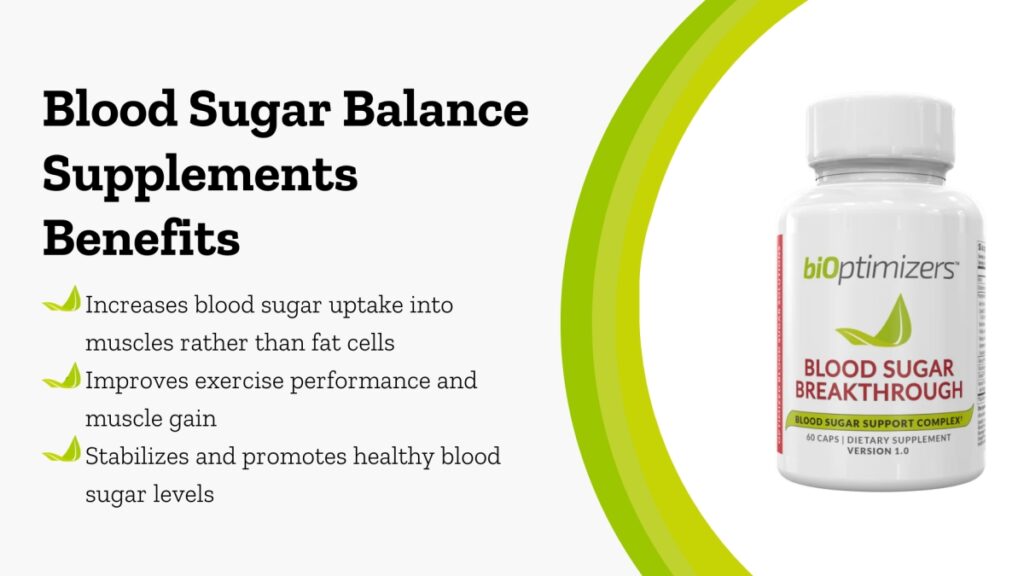
How To Fix Low Blood Sugar Levels
Eat A Low-Glycemic Impact Snack
The glycemic index (GI) assigns a number for carbohydrate foods based on how quickly the food with 50 grams of carbohydrates elevates blood sugar levels following a two-hour period.
The glycemic load (GL) is the amount of carbohydrates in a food. A low-glycemic impact diet considers both GI and GL. You can consume any low-GL food, but high-GL foods should be low in GI to avoid disrupting blood sugar levels.
Examples of low glycemic impact snacks include:
- Plain yogurt with no sugar GI=14 GL=2
- Peanuts GI=15 GL=4
- Peanut butter GI=22 GL=5
- Soybeans GI=18 GL=2
- Cherries GI=22 GL=3
- Cashew nuts GI=22 GL=6
- Grapefruit GI=25 GL=3
- Strawberries GI=40 GL=3
- Hard boiled eggs GI=0
- Any protein foods, such as fish and meat
- Legumes and pulses
Apart from healthy means, you can optimize your blood levels further with supplements.
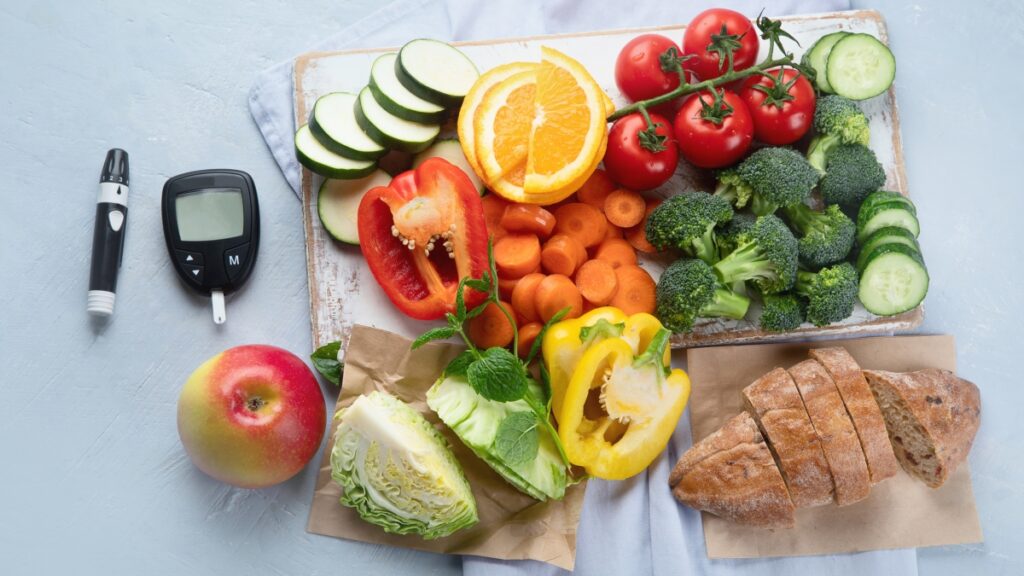
Eat Protein And Fiber
Lower glycemic impact foods tend to be higher in fiber and protein. By incorporating more foods that have a low glycemic impact, you can feel fuller, faster, and more satisfied while decreasing hunger and unnecessary cravings for generally unhealthy food.
Most vegetables (other than white potatoes), fruits, intact whole grains, milk products, and legumes have a pretty low GI. They are all incredibly healthy and can help you in the long run.
If you need a supplement, consider natural supplements for blood sugar.
Conclusion
When the amount of sugar in your blood drops, you have low blood sugar, commonly known as hypoglycemia. We discussed hypoglycemia in healthy or non-diabetic people, which occurs when blood sugar levels are low enough to elicit symptoms but not so low it’s life-threatening.
We covered the main causes of low blood sugar levels, including insulin resistance and blood sugar fluctuations, a high-carb or high-sugar meal, and a potential overdose of insulin medication.
Thankfully, there are ways to optimize your low blood sugar levels. The main factor would be your diet—consider switching and including more protein and fiber. You should also consider the glycemic index and glycemic load of foods you consume and aim for the lowest scores.
- Bansal N, Weinstock RS. Non-Diabetic Hypoglycemia. In: Endotext [Internet]. MDText.com; 2020.
- Eckert-Norton M, Kirk S. Non-diabetic hypoglycemia. J Clin Endocrinol Metab. 2013;98(10):39A-40A. doi:10.1210/jc.2013-v98i10.39A
- Samuel VT, Shulman GI. The pathogenesis of insulin resistance: integrating signaling pathways and substrate flux. J Clin Invest. 2016;126(1):12-22. doi:10.1172/JCI77812
- Wilcox G. Insulin and insulin resistance. Clin Biochem Rev. 2005;26(2):19-39. Accessed March 10, 2022. https://www.ncbi.nlm.nih.gov/labs/pmc/articles/PMC1204764/
- Yitshak-Sade M, Mendelson N, Novack V, Codish S, Liberty IF. The association between an increase in glucose levels and armed conflict-related stress: A population-based study. Sci Rep. 2020;10(1):1710. doi:10.1038/s41598-020-58679-z
- Xu X, Wang L, Zhang Y, et al. Effects of chronic sleep deprivation on glucose homeostasis in rats. Sleep Biol Rhythms. 2016;14(4):321-328. doi:10.1007/s41105-016-0061-y
- custom-reference id=”ref-7″]Kahn SE, Hull RL, Utzschneider KM. Mechanisms linking obesity to insulin resistance and type 2 diabetes. Nature. 2006;444(7121):840-846. doi:10.1038/nature05482 [/custom-reference]
- Wolever TMS. Carbohydrate and the regulation of blood glucose and metabolism. Nutr Rev. 2003;61(5 Pt 2):S40-8. doi:10.1301/nr.2003.may.S40-S48
- Eigler N, Saccà L, Sherwin RS. Synergistic interactions of physiologic increments of glucagon, epinephrine, and cortisol in the dog: a model for stress-induced hyperglycemia. J Clin Invest. 1979;63(1):114-123. doi:10.1172/JCI109264
- Gundgurthi A, Kharb S, Dutta MK, Pakhetra R, Garg MK. Insulin poisoning with suicidal intent. Indian J Endocrinol Metab. 2012;16 Suppl 1(7):S120-2. doi:10.4103/2230-8210.94254
- Wolever TM. The glycemic index. World Rev Nutr Diet. 1990;62:120-185.
- Eleazu CO. The concept of low glycemic index and glycemic load foods as panacea for type 2 diabetes mellitus; prospects, challenges and solutions. Afr Health Sci. 2016;16(2):468-479. doi:10.4314/ahs.v16i2.15
- Bittencourt JA. The Power of Carbohydrates, Proteins, and Lipids: How to Make Wise Choices in Diet and Nutrition. Createspace Independent Publishing Platform; 2018.
- Zafar MI, Mills KE, Zheng J, Peng MM, Ye X, Chen LL. Low glycaemic index diets as an intervention for obesity: a systematic review and meta-analysis: Low GI diets for obesity. Obes Rev. 2019;20(2):290-315. doi:10.1111/obr.12791
- Rovner AJ, Nansel TR, Gellar L. The effect of a low-glycemic diet vs a standard diet on blood glucose levels and macronutrient intake in children with type 1 diabetes. J Am Diet Assoc. 2009;109(2):303-307. doi:10.1016/j.jada.2008.10.047




